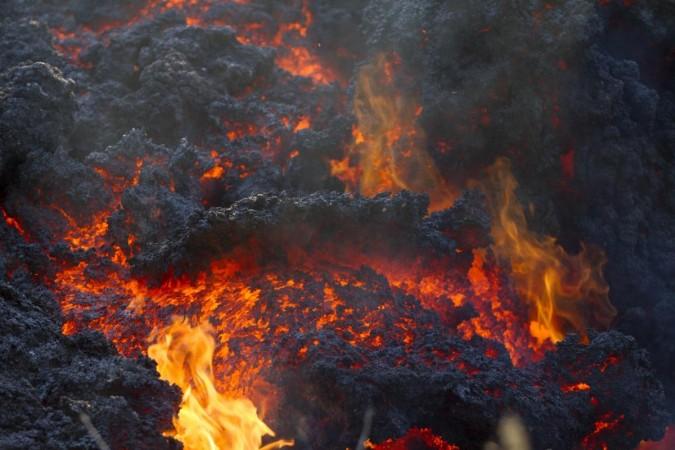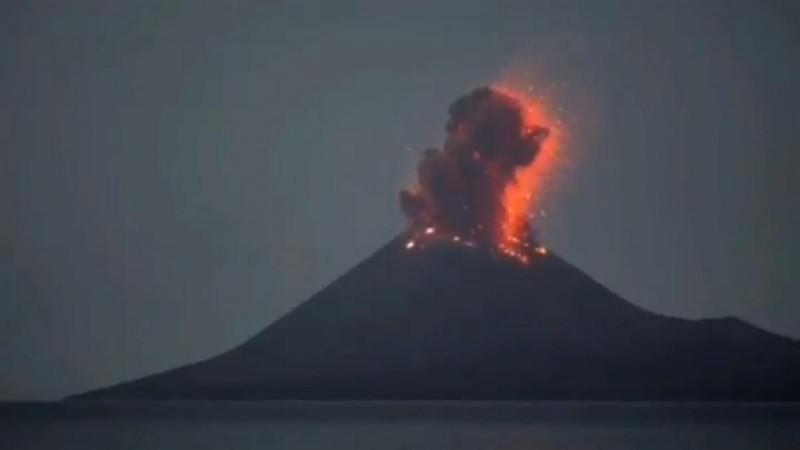Glowing red hot lava continued to flow on Thursday after a volcanic eruption on Iceland's Reykjanes peninsula, about 30 km south-west of the capital Reykjavik.
Live images broadcast on Icelandic televsion showed molten lava coming from a fissure several hundred metres long in the rugged landscape, reports dpa news agency.
White smoke rose continuously from the molten rock.
According to initial measurements, the eruption was much more powerful in the early hours than at the beginning of a similar one in 2021.
A series of earthquakes that heralded the eruption also continued.
On Thursday morning, a quake with a magnitude of 4.6 was measured on the peninsula, according to data from the Icelandic Meteorological Authority.

The number of tremors, however, has decreased noticeably since the eruption, according to the authority.
The eruption started on Wednesday afternoon near the mountain Fagradalsfjall. Scientists expected one due to earthquakes and associated underground magma movements.
There is no major danger to people or the surrounding area, according to findings so far.
It is still unclear how long the eruption will last.

An eruption on the same peninsula last year saw lava fountains shooting upwards for months. The natural spectacle attracted countless volcanologists, hikers and travellers.
This time, too, curious onlookers have made their way to the eruption site.
The area is relatively sparsely populated, but is home to the country's most important airport, which handles practically almost all air traffic to and from the island.

















